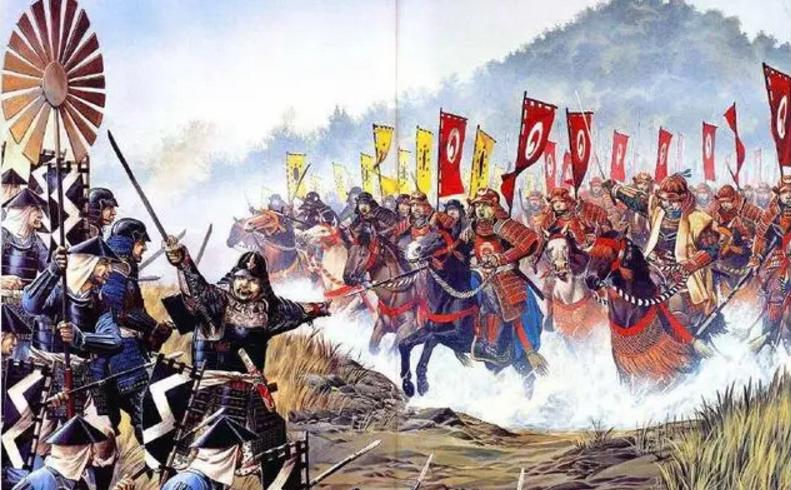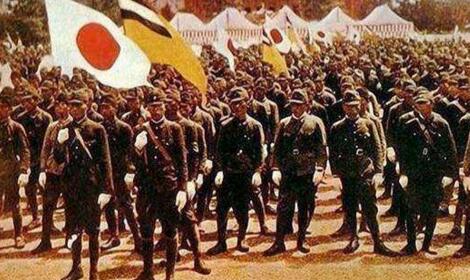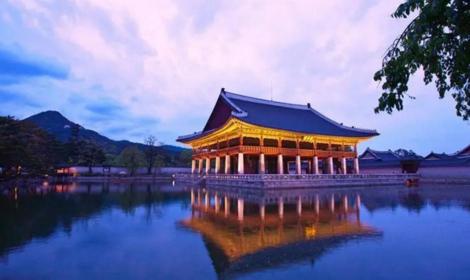为什么葡萄牙人没有殖民日本,因为他们是第一个带上殖民和帝国主义历史/思维方式的欧洲人到达日本的?
正文翻译

Boyan Penev
Portugal, in particular, was a fairly small country. Japan was bigger, a lot more populous and a long way away. In fact, at the time, Japan’s population was comparable to that of France and possibly, depending on the source, more than that of England and France combined. Portugal had around 8–10% of Japan’s population. Think of the logistics - how would the whole thing work?
Being able to wage war and conquer a very far away region is a difficult task today, and much more difficult in the 16th century. Therefore, colonization by force can only happen when the local population is small and non-hostile, far behind technologically (say, how the Amerindians were in the Caribbean) or when they were divided and fighting between themselves and local rulers would ally with the Europeans, like in India. Japan was definitely not the first or the second, and the third, well, it was for a while, but it is questionable if any European power was able to interfere significantly during that period.
葡萄牙是一个相对较小的国家。日本更大,人口更多,而且距离很远。事实上,当时日本的人口与法国相当,可能比英格兰和法国的人口加起来还要多,而葡萄牙只有日本人口的8-10%。考虑到后勤 - 整个过程怎么运作?
能够发动战争并征服一个非常遥远的地区是一项艰巨的任务,特别是在16世纪。因此,强迫殖民只有在当地人口较少且不敌、技术落后(例如加勒比地区的美洲原住民),或当地人群体内部分裂并互相争斗,当地统治者将与欧洲人结盟时才能发生。日本显然不是第一或第二类情况,至于第三种,它一度是这样,但任何欧洲大国是否能在这段时间内对其产生重大干预还是值得质疑的。
Theoretically, a much stronger Portugal could have been able to exploit the infighting in Japan before its unification in the early 17th century, but at the time the Portuguese were much more interested in Southeast Asia and trade with China. Even then, Japan was fairly large, and the Portuguese could dedicate only so much resources to supporting their local allies. They weren’t that good at making friends either, what with the religious and cultural difference on either side (both sides considered the other uncultured barbarians with reprehensible habits and a weird religion) and the slave trade which took place initially - let’s not mince words, a lot of Japanese were purchased as slaves and sold outside of the country. Once Japan was unified, colonization was simply not feasible, and some incidents caused mostly by the Spanish led to the expulsion of almost all European traders. It is noteworthy that there was almost no reaction to it from the European countries, unlike the Opium Wars with China some 200 years later.
理论上,一个更强大的葡萄牙可能会在17世纪初日本统一之前利用其分裂。但当时葡萄牙远更感兴趣的是东南亚和与中国的贸易。即使如此,日本相当大,葡萄牙只能投入有限的资源来支持他们的本地盟友。两边在宗教和文化上的差异(双方都认为对方是野蛮人,拥有可鄙的习惯和奇怪的宗教),还有最初的奴隶贸易也让他们交朋友变得更困难 - 说白了,许多日本人被购买成为奴隶并被出售到国外。一旦日本统一,殖民就根本不现实了。一些事情造成的影响主要来自西班牙,导致几乎所有欧洲商人被驱逐出境。值得注意的是,与200年后的中国鸦片战争不同,欧洲各国几乎没有对此做出反应。
Had it been Spain - a bigger and more aggressive country - that had first found Japan, it might have been more proactive. However, I still do not think it likely that Japan or a significant part of it would have been colonized. Remember, at the same time Spain, and to a point Portugal, had problems much closer at home - revolts in the Netherlands and naval wars against the Ottomans in the Mediterranean - and colonies around the world which they also valued. Japan was way too far, way too strong, and honestly, not that big of a priority to justify the number of soldiers and the amount of money needed.
What could have happened, realistically speaking, is 1–2 autonomous ports or a small region becoming dedicated ports under essential Portuguese control (maybe with some window dressing that lets the Shogun claim nominal control). Essentially, it would be, say, Nagasaki and Tanegashima functioning sort of how Hong Kong or Macau did. But Japan becoming a Portuguese colony? It just would not happen.
如果是以西班牙 - 一个更大、更具攻击性的国家 - 发现了日本,它可能会更加积极。然而,我仍然认为日本或其中的重要部分不太可能被殖民。请记住,同时期的西班牙,到某种程度上也包括葡萄牙,在家中更接近 - 荷兰的反抗和地中海地区对骑士团的海战 - 并且在世界各地都有他们看重的殖民地。日本太远了,太强大了,说实话,并不是那么重要,无法证明需要投入大量士兵和资金。
实际情况下,可能发生的是1-2个自治港口或一个小地区成为葡萄牙控制下的专门港口(也许有一些表面上的东西让幕府声称名义上拥有控制权)。本质上,它将类似于长崎和稻叶岛,以某种方式发挥香港或澳门的功能。但日本成为葡萄牙殖民地?根本不可能。

Boyan Penev
Portugal, in particular, was a fairly small country. Japan was bigger, a lot more populous and a long way away. In fact, at the time, Japan’s population was comparable to that of France and possibly, depending on the source, more than that of England and France combined. Portugal had around 8–10% of Japan’s population. Think of the logistics - how would the whole thing work?
Being able to wage war and conquer a very far away region is a difficult task today, and much more difficult in the 16th century. Therefore, colonization by force can only happen when the local population is small and non-hostile, far behind technologically (say, how the Amerindians were in the Caribbean) or when they were divided and fighting between themselves and local rulers would ally with the Europeans, like in India. Japan was definitely not the first or the second, and the third, well, it was for a while, but it is questionable if any European power was able to interfere significantly during that period.
葡萄牙是一个相对较小的国家。日本更大,人口更多,而且距离很远。事实上,当时日本的人口与法国相当,可能比英格兰和法国的人口加起来还要多,而葡萄牙只有日本人口的8-10%。考虑到后勤 - 整个过程怎么运作?
能够发动战争并征服一个非常遥远的地区是一项艰巨的任务,特别是在16世纪。因此,强迫殖民只有在当地人口较少且不敌、技术落后(例如加勒比地区的美洲原住民),或当地人群体内部分裂并互相争斗,当地统治者将与欧洲人结盟时才能发生。日本显然不是第一或第二类情况,至于第三种,它一度是这样,但任何欧洲大国是否能在这段时间内对其产生重大干预还是值得质疑的。
Theoretically, a much stronger Portugal could have been able to exploit the infighting in Japan before its unification in the early 17th century, but at the time the Portuguese were much more interested in Southeast Asia and trade with China. Even then, Japan was fairly large, and the Portuguese could dedicate only so much resources to supporting their local allies. They weren’t that good at making friends either, what with the religious and cultural difference on either side (both sides considered the other uncultured barbarians with reprehensible habits and a weird religion) and the slave trade which took place initially - let’s not mince words, a lot of Japanese were purchased as slaves and sold outside of the country. Once Japan was unified, colonization was simply not feasible, and some incidents caused mostly by the Spanish led to the expulsion of almost all European traders. It is noteworthy that there was almost no reaction to it from the European countries, unlike the Opium Wars with China some 200 years later.
理论上,一个更强大的葡萄牙可能会在17世纪初日本统一之前利用其分裂。但当时葡萄牙远更感兴趣的是东南亚和与中国的贸易。即使如此,日本相当大,葡萄牙只能投入有限的资源来支持他们的本地盟友。两边在宗教和文化上的差异(双方都认为对方是野蛮人,拥有可鄙的习惯和奇怪的宗教),还有最初的奴隶贸易也让他们交朋友变得更困难 - 说白了,许多日本人被购买成为奴隶并被出售到国外。一旦日本统一,殖民就根本不现实了。一些事情造成的影响主要来自西班牙,导致几乎所有欧洲商人被驱逐出境。值得注意的是,与200年后的中国鸦片战争不同,欧洲各国几乎没有对此做出反应。
Had it been Spain - a bigger and more aggressive country - that had first found Japan, it might have been more proactive. However, I still do not think it likely that Japan or a significant part of it would have been colonized. Remember, at the same time Spain, and to a point Portugal, had problems much closer at home - revolts in the Netherlands and naval wars against the Ottomans in the Mediterranean - and colonies around the world which they also valued. Japan was way too far, way too strong, and honestly, not that big of a priority to justify the number of soldiers and the amount of money needed.
What could have happened, realistically speaking, is 1–2 autonomous ports or a small region becoming dedicated ports under essential Portuguese control (maybe with some window dressing that lets the Shogun claim nominal control). Essentially, it would be, say, Nagasaki and Tanegashima functioning sort of how Hong Kong or Macau did. But Japan becoming a Portuguese colony? It just would not happen.
如果是以西班牙 - 一个更大、更具攻击性的国家 - 发现了日本,它可能会更加积极。然而,我仍然认为日本或其中的重要部分不太可能被殖民。请记住,同时期的西班牙,到某种程度上也包括葡萄牙,在家中更接近 - 荷兰的反抗和地中海地区对骑士团的海战 - 并且在世界各地都有他们看重的殖民地。日本太远了,太强大了,说实话,并不是那么重要,无法证明需要投入大量士兵和资金。
实际情况下,可能发生的是1-2个自治港口或一个小地区成为葡萄牙控制下的专门港口(也许有一些表面上的东西让幕府声称名义上拥有控制权)。本质上,它将类似于长崎和稻叶岛,以某种方式发挥香港或澳门的功能。但日本成为葡萄牙殖民地?根本不可能。
评论翻译
Erik Painter
They made a good start. As they did in other places they started trading with local leaders and then tried to spread Christianity. In other places they then would have co-opted those local rulers who converted, supplied them arms to fight other rulers and ultimately taken over. This is what happen in places like India in Cochin, Goa and what is now Sri Lanka. But the Japanese were just as an advanced feudal society as Portugal was. Portugal was a much smaller population as well. About 2 million in 1600. Spain was 8 million. Japan was a centralized feudal state with 18 to 26 million people and very successful armies. It was more urbanized than much of Europe. Japanese military prowess was also well noted. “A Spanish royal decree of 1609 specifically directed Spanish commanders in the Pacific ‘not to risk the reputation of our arms and state against Japanese soldier.''”
他们有一个良好的开始。与他们在其他地方一样,他们开始与当地领袖进行贸易,然后试图传播基督教。在其他地方,他们接着会把那些皈依了基督教的当地统治者纳入团队中,供应他们武器以对抗其他统治者,最终接管领土。这就是在印度的科钦、果阿和现在的斯里兰卡发生的情况。但是日本同葡萄牙一样是一个先进的封建社会。而葡萄牙人口也要少得多,1600年只有大约200万人。西班牙则有800万人。日本是一个拥有1800万到2600万人口的集权封建国家,其军队非常强大。它也比欧洲的许多地方更为城市化。日本的军事实力也广为人知。“1609年,西班牙国王特别命令太平洋的西班牙指挥官‘不要冒险把我们的荣誉和国家声誉放在日本士兵身上’。”
In India, for example, Cochin was not part as a big nation a nation. The Portuguese set up a trading post, and missionaries. They promised to be allies with the local ruler against his overlords, Zamorin of Calicut. This part is exactly the same as what they did in Japan. They then defeated Calicut’s attempt to take it back. The Zamorin lost much of his authority over the Malabar states of India in the aftermath. Then over time preceded to undermine and take over Cochin.
以印度为例,科钦并不是一个大国,只是一个贸易站点和传教所。他们承诺与当地统治者结盟对抗他的统治者 - 卡利库特的匝莫林。这部分与他们在日本所做的完全相同。他们随后打败了卡利库特试图夺回科钦的企图,匝莫林在此后失去了对印度马拉巴尔州的大部分权威。然后随着时间的推移,他们逐渐瓦解并接管了科钦。
In Japan, the Shogun figured this out. He had solidified his rule over all the islands. Fanatical converts were trying to expand and take over all of Kyushu by sacking Buddhist temples. He was outraged over the new Japanese Christians selling Japanese into slavery to the Portuguese. At first contact, the Portuguese had taken Japanese as slaves. The Tensho mission, which was sent by the Japanese Christian lord Otomo Sorin to the pope and kings of Europe in 1582 and traveled to Rome via the Indian Ocean, saw Japanese slaves around the world. .The rarely, if ever, told story of Japanese sold as slaves by Portuguese traders | The Japan Times A captain of a Spanish Manila Galleon that was shipwreck said that sending missionaries was the way they set places up to be taken over. He showed them a globe to brag about how much the Spanish had control over. This was true. They did use missionaries to take control of places. The leader of the Jesuits there, Gaspar Coelho said he could summon Portuguese ships and troops to help take over Korea. He said he would spread churches all over China and Korea. Hideyoshi finally realized the truth. They were an arm of a European state seeking to control other nations. The Portuguese wanted to take over and Christianize the country and sell Japanese as slaves.
在日本,将军意识到了这一点。他已经巩固了他在所有岛屿上的统治地位。狂热的基督教信徒试图通过袭击佛教寺庙扩张并接管九州的所有地区。他对新日本基督徒出售日本人作为奴隶给葡萄牙人感到愤怒。在最初的接触中,葡萄牙人就拿走了日本人作为奴隶。 1582年,由日本基督教领主大友宗麟派遣的天正使团前往欧洲教皇和各国国王,并通过印度洋前往罗马,发现日本奴隶遍布全球。西班牙马尼拉大剧院的一个船长坦言,派遣传教士是他们接管地区的方法。他向日本人炫耀了世界各地西班牙控制的地方。这是真实的,他们确实使用传教士来接管地区。耶稣会领袖在那里的负责人卡斯帕·科尔霍(Gaspar Coelho)说,他可以召集葡萄牙舰队和部队来帮助接管朝鲜。他说他将在中国和朝鲜开设教堂。秀吉最终意识到了真相。他们是欧洲国家寻求控制其他国家的武器。葡萄牙人想要接管并基督化这个国家,然后出售日本人作为奴隶。
The Jesuit leader then tried to get local feudal lords to rise up against Hideyoshi. He offer troops and money. They refused. Hideyoshi crushed the local lords who did rebel. He kicked out the Portuguese and he banned the undermining new foreign religion, Christianity and killed many converts. The Portuguese were no match for the Japanese armies and they were at the very end of their supply lines. From the 1630s until the 1850s only the Dutch were allowed to have a trading post in Japan on an artificial island. No missionaries were allowed. No travel in the rest of Japan was allowed. The numbers of ships and people were limited. Most Japanese were banned from travel abroad on the pain of death if they returned.
These policies and success prevented Japan from being cut up into several different European colonies. It prevented them from losing their culture, language, and religion. It prevented Japan from becoming Vietnam or Sri Lanka.
耶稣会领袖随后试图让当地封建领主反对秀吉。他提供军队和金钱。他们拒绝了。秀吉粉碎了那些反叛的地方领主。他赶走了葡萄牙人,并禁止有外来宗教——基督教,还杀害了许多皈依者。葡萄牙人无法与日本军队抗衡,因为他们仅处于他们的供应线的最后阶段。从17世纪30年代到19世纪50年代,只有荷兰人被允许在一座人工岛上建立贸易站。不允许传教士,不允许在日本其他地方旅行。船只和人员的数量也受到限制。日本维持这些政策并取得成功,防止了其被切割成几个欧洲殖民地。这使他们没有失去自己的文化、语言和宗教信仰。这也防止了日本成为越南或斯里兰卡。
Linus Skov
I live in Europe and I'm loving it
Portugal, originally, never really colonized nations the way we think of it. Only in the New World, where disease was rapidly exterminating the relatively small and underdeveloped population, was permanent settlement an option.
Most of Portugal’s original colonial empire consisted of small forts and trading stations, used to control and monopolize trade routes between Europe and Asia. That was the same policy they followed in Japan, to my knowledge, where the population was far too technologically advanced and large for tiny Portugal to subjugate, even with superior weapons.
It wasn’t really until the Scramble for Africa that European nations started to claim territory in the Old World, instead of setting up trading networks. This is even how the British started out in India.
我住在欧洲,我非常喜欢这里。起初,葡萄牙并没有像我们想象中那样殖民其他国家。只有在新大陆,由于疾病迅速消灭了相对较小和欠发达的人口,才有永久定居的可能性。
葡萄牙最初的殖民帝国大部分由小堡垒和贸易站组成,用于控制和垄断欧洲与亚洲之间的贸易路线。据我所知,他们在日本也采取了同样的政策,但当时日本的人口技术水平都比葡萄牙先进得多,而且规模也大得多,即使拥有更先进的武器,葡萄牙也无法征服。
直到非洲瓜分才是欧洲国家开始在旧世界主张领土而不是建立贸易网络的时期。这甚至是英国在印度开始的方式。
Jose Luis Malaquias
Actually, it is a bit more complex than that. Portugal, as a state, essentially only went as far as India (with the exception of the strategically important Malacca Strait. The Portuguese that went further, on to China, Japan, Malaysia, etc. went mostly as free lancing private individuals, that went there to make money or to spread the religion. In Japan, it was mostly Jesuits that were there primarily as Jesuits rather than representatives of Portugal, Apart from the Jesuits there were Portuguese traders and adventurers, but they were there mostly in a private capacity to trade, and not to go on military conquest.
事实上,情况比这更加复杂。葡萄牙作为一个国家,实际上只到达了印度(除了战略重要的马六甲海峡)。往更远的地方,如中国、日本、马来西亚等地,葡萄牙人大多是自由职业个人前往,他们去那里赚钱或传教。在日本,主要是耶稣会士,他们主要是作为耶稣会士而不是葡萄牙代表来到那里。除了耶稣会士外,还有葡萄牙商人和冒险家,但他们主要是以私人身份进行贸易,而不是进行军事征服。
Joseph Rego
Portugal was tiny in terms of a native European population. Continental Portugal, at this time, barely had a population of 1 million people. When you take into consideration the number of children, females, and the elderly it was a tiny population indeed. That so few young men could have accomplished so much with so little is a testament to the will, spirit and power of the human species…and an even greater testament to the power of the Portuguese soul.
葡萄牙当时本土欧洲人口很少。当时,葡萄牙本土几乎只有100万人口。考虑到女性、儿童和老年人的数量,这是一个非常小的人口。这么少的年轻人能够用如此之少的力量取得如此多的成就,证明了人类意志、精神和力量的不可思议……更加证明了葡萄牙人的精神力量。
Pieter
In many ways they were more similar to the Dutch than to the Spanish. Rather than conquering vast swathes of land they established coastal trading posts.
在很多方面,他们更像荷兰人,而不是西班牙人。他们并没有征服大片土地,而是建立了沿海贸易站。
Brazil forms something of an exception and the green areas on the African coast show more what they theoretically claimed than what they actually ruled. In Asia you see almost all of their holdings consist of trading posts and cities.
I even doubt if they considered conquering Japan rather than just trading with them and preaching their religion. The Spanish are a different matter.
巴西在某种程度上是个例外,非洲海岸上的绿色区域显示出他们理论上认领的地区,而不是他们实际统治的区域。在亚洲,几乎所有的领土都是由贸易站和城市组成的。我甚至怀疑他们是否考虑过征服日本,而只是与他们进行贸易并传教。而西班牙则是另一回事。
Leo Poroshin
They made an effort. But distance, the fact that Japanese were armed and rather militant, and economic considerations prevented complete colonization. Also, Japan was not some primitive Third World country even then. Portuguese tried to infiltrate it with trading and religion, but ultimately had to give up in face of Dutch competition and general opposition in Japan itself.
他们做了一些尝试,但是距离、日本人武装并且相当好战,以及经济方面的考虑都阻止了他们完全殖民的计划。此外,即使在那时,日本也不是某个原始的第三世界国家。葡萄牙试图通过贸易和宗教渗透进入日本,但最终不得不面对荷兰的竞争和日本本地的反对而放弃了。
Yoni Ariel
Two reasons.
1.There was disagreement between Spain and Portugal as to which one had received permission from the Pope to colonize Japan, relating to the period when the Spanish monarch was also king of Portugal. Spain eventually relinquished its claims.
2.They realized that Japan was far too big and advanced for them to conquer, which is why they concentrated on trade and proselytizing, realizing that only if a large number of Japanese nobles and their Samurai armies adopted Christianity, would they have any chance of success.
At first the Japanese nobility was ambivalent about attempts to convert Japanese to Catholicism. However after the Dutch and English arrived, and informed the Japanese as to the claims Spain and Portugal, and how conversion was part of their plan to eventually colonize and subdue Japan, as they had done throughout the Americas. As a result, after the Isayaw Tokugawa became Shogun, he banned Christianity, and expelled the Spanish and Portuguese. The only Europeans permitted to enter Japan were the Dutch, who were allowed to maintain a small trading mission on the island of Kyushu.
有两个原因:
1.西班牙和葡萄牙之间存在分歧,关于哪一个获得了教皇的殖民日本的许可,这涉及到西班牙君主同时担任葡萄牙国王的时期。最终西班牙放弃了自己的权利。
2.他们意识到日本对于他们来说太大而且太先进了,无法征服。这就是为什么他们集中于贸易和传教士工作,认识到只有当大量日本贵族和其武士部队接受基督教,他们才有任何成功的机会。
起初,日本贵族对于将日本人改宗天主教的尝试持有矛盾态度。但在荷兰和英国到来后,他们告知日本人西班牙和葡萄牙的计划,以及改宗是他们最终殖民和征服日本的一部分,就像他们在整个美洲那样。结果,在日本的伊达政权上台后不久,他禁止了基督教,并将西班牙和葡萄牙人逐出了日本。唯一被允许进入日本的欧洲人是荷兰人,他们被允许在九州岛上维持一个小型贸易使团
Ludovico Altana
Europeans aren’t some sort of magical all-conquering aliens.
Japan was a densely populated, well-organized, advanced warlike society; they were far more profitable as a source of trade. The way Japan worked would have made it very hard for European powers to slowly infiltrate local polities like what happened in India, and outright conquest would have been insanely hard.
Conquests on this scale only happen with local support, which is precisely what happened in Mexico and India. This was unlikely in Japan. The only possibility of finding local allies would have been conversion to Christianity of vast segments of the warrior class; this risk was recognized and converts were universally opposed by the rest.
And even if a large fraction of the Samurai did convert to Catholicism, the only European power capable of conquering Japan would have been Spain, and even then… they had trouble keeping the Netherlands in check. Japan was bigger than Spain and almost as advanced, and possibly wealthier.
欧洲人不是某种神奇的全能征服外星人。日本是一个人口密集、组织良好、先进的好战社会;它们作为贸易来源更加有利可图。日本的运作方式使得欧洲大国很难像在印度那样逐渐渗透到当地政治中,而直接征服则几乎不可能。
在这种规模的征服中,只有得到当地支持才有可能成功,这正是在墨西哥和印度所发生的情况。然而,在日本这种情况是不太可能发生的。唯一可能找到当地盟友的可能性是将大量武士阶层改变信仰成为基督教徒;但这个风险被认识到,并且其他人都普遍反对改变信仰。
即使大部分武士都改信天主教,唯一能够征服日本的欧洲大国将会是西班牙,但即便如此,他们也难以控制荷兰。日本比西班牙更大,几乎同样先进,可能还更富有。
Christian Desaix
Because the Portuguese never had the manpower or resources to do anything like that. Portuguese seapower in the Indian Ocean was able to control trade routes and seize a handful of key ports, but the Portuguese had little success on land— and certainly never had the strength to control and occupy something as large as Japan.
因为葡萄牙人从来没有足够的人力或资源来做到那样的事情。葡萄牙在印度洋上的海上实力可以控制贸易路线并占领一些关键港口,但是葡萄牙在陆地上很少取得成功——当然也从来没有足够的实力来控制和占领像日本这样大的国家。
Patrick Grant
They were too far away to stage anything without literally years of planning.
This was not a time when world war was even plausible. Once planning was complete, it would take a significant navy months to navigate around the globe to start a war with Japan. There was still not enough known about that enormous set of continents between Europe and the Japanese home islands to attempt moving west across the Pacific, much less sail around Africa and through Indonesia.
他们距离日本太远了,没有年份的计划就不可能实行任何行动。这个时候世界战争甚至还不是可行的。一旦计划完成,需要一支强大的海军花费数月时间环球航行才能开始对日本发动战争。我们对欧洲与日本本土之间的大片陆地了解得仍然不多,所以试图横越太平洋向西移动,更不用说穿过非洲和印度尼西亚了。
Gilberto Rocha
What makes you say that Portugal had a “colonizer and imperialist history/mentality”? Portugal’s main intention, at least at the beginning, was to trade through sea ports and the “empire” only grew as a consequence of defending its trade posts and routes. The problem with Japan was due to religious/philosophic clashes. Japan eventually closed to the world possibly due to guilty feelings of what they have done to the well meaning Portuguese Jesuit missionaries.
你为什么认为葡萄牙有“殖民和帝国主义的历史/心态”?葡萄牙的主要意图,至少在开始时,是通过海港贸易,而“帝国”只是保卫其贸易站点和路线的结果。与日本的问题是由于宗教/哲学冲突而引起的。日本最终对外关闭可能是因为对那些好意的葡萄牙耶稣会传教士所做的事情感到内疚。
Peter Banos
Japan was a well populated country, with a pretty effective government for its time; and Portugal didn’t have the human resources to set up much more than coastal trading posts in most places. Quorans often ask about “colonizing” as if it’s a simple thing; nothing in history is simple, everything depends on a host of disparate factors…
日本是一个人口众多、在当时拥有相当有效的政府的国家;而葡萄牙没有足够的人力资源在大部分地方设立超过沿海贸易站点的东西。Quora经常询问关于“殖民”的问题,好像这是一件简单的事情;历史上没有什么是简单的,一切都依赖于一系列不同的因素...
Victor Lopes
Portuguese never intended to colonize Japan. The reason for their presence in Asia was primarily trade.
All the Portuguese colonial empire in the 16th century consisted of cities and ports connected in a maritime network stretching from Lisbon to Macau. The only territory they colonized and populated was Brazil.
葡萄牙从未打算殖民日本。他们在亚洲存在的原因主要是贸易。 16世纪的所有葡萄牙殖民帝国都由连接从里斯本到澳门的海上网络的城市和港口组成。他们唯一殖民和移民的领土是巴西。
Rúben M
Well, not colonized Japan in totality, but it just conquered a some coastal cities and Nagasaki of course, but almost half the world converted to Christianity and that was the work of the Portuguese, in addition to the Portuguese language being one of the most spoken in the world with almost 300 million speakers worldwide, and haved 32 languages Created from the Portuguese language and others contries speak a Portuguese Creole, a 600-year-old empire, is perfectly normal and left its mark very well.
As I think that these people have also contributed a lot to the history of humanity, I publish this article, contributed to technological advances that were later adapted, contributed culturally and linguistically, in several things that are unknown abroad and that imperialism hides in your secrets.
The History of the Great Warriors, Who Today See Their History Wrong in the World, due to the imperialism of modern society.
虽然葡萄牙没有完全殖民日本,但他们征服了一些沿海城市以及长崎,并使近一半的世界人口皈依基督教,这是葡萄牙人的功劳。此外,葡萄牙语是世界上使用最广泛的语言之一,在全球拥有近3亿名使用者,还有32种葡萄牙语创造的语言和其他国家的葡萄牙克里奥尔语。这个有着600年历史的帝国,在许多方面对技术、文化和语言都做出了贡献,但这些在帝国主义时代被掩盖了。
我认为这些人也对人类历史做出了巨大的贡献,他们为后来的技术进步提供了适应性,并在文化和语言上做出了贡献,他们在许多国外未知的事物中留下了深刻的影响,这些都是现代社会帝国主义所掩盖的秘密。
作为伟大的武士之一的历史,今天被世界错误地看待,这也是由于现代社会的帝国主义。
They made a good start. As they did in other places they started trading with local leaders and then tried to spread Christianity. In other places they then would have co-opted those local rulers who converted, supplied them arms to fight other rulers and ultimately taken over. This is what happen in places like India in Cochin, Goa and what is now Sri Lanka. But the Japanese were just as an advanced feudal society as Portugal was. Portugal was a much smaller population as well. About 2 million in 1600. Spain was 8 million. Japan was a centralized feudal state with 18 to 26 million people and very successful armies. It was more urbanized than much of Europe. Japanese military prowess was also well noted. “A Spanish royal decree of 1609 specifically directed Spanish commanders in the Pacific ‘not to risk the reputation of our arms and state against Japanese soldier.''”
他们有一个良好的开始。与他们在其他地方一样,他们开始与当地领袖进行贸易,然后试图传播基督教。在其他地方,他们接着会把那些皈依了基督教的当地统治者纳入团队中,供应他们武器以对抗其他统治者,最终接管领土。这就是在印度的科钦、果阿和现在的斯里兰卡发生的情况。但是日本同葡萄牙一样是一个先进的封建社会。而葡萄牙人口也要少得多,1600年只有大约200万人。西班牙则有800万人。日本是一个拥有1800万到2600万人口的集权封建国家,其军队非常强大。它也比欧洲的许多地方更为城市化。日本的军事实力也广为人知。“1609年,西班牙国王特别命令太平洋的西班牙指挥官‘不要冒险把我们的荣誉和国家声誉放在日本士兵身上’。”
In India, for example, Cochin was not part as a big nation a nation. The Portuguese set up a trading post, and missionaries. They promised to be allies with the local ruler against his overlords, Zamorin of Calicut. This part is exactly the same as what they did in Japan. They then defeated Calicut’s attempt to take it back. The Zamorin lost much of his authority over the Malabar states of India in the aftermath. Then over time preceded to undermine and take over Cochin.
以印度为例,科钦并不是一个大国,只是一个贸易站点和传教所。他们承诺与当地统治者结盟对抗他的统治者 - 卡利库特的匝莫林。这部分与他们在日本所做的完全相同。他们随后打败了卡利库特试图夺回科钦的企图,匝莫林在此后失去了对印度马拉巴尔州的大部分权威。然后随着时间的推移,他们逐渐瓦解并接管了科钦。
In Japan, the Shogun figured this out. He had solidified his rule over all the islands. Fanatical converts were trying to expand and take over all of Kyushu by sacking Buddhist temples. He was outraged over the new Japanese Christians selling Japanese into slavery to the Portuguese. At first contact, the Portuguese had taken Japanese as slaves. The Tensho mission, which was sent by the Japanese Christian lord Otomo Sorin to the pope and kings of Europe in 1582 and traveled to Rome via the Indian Ocean, saw Japanese slaves around the world. .The rarely, if ever, told story of Japanese sold as slaves by Portuguese traders | The Japan Times A captain of a Spanish Manila Galleon that was shipwreck said that sending missionaries was the way they set places up to be taken over. He showed them a globe to brag about how much the Spanish had control over. This was true. They did use missionaries to take control of places. The leader of the Jesuits there, Gaspar Coelho said he could summon Portuguese ships and troops to help take over Korea. He said he would spread churches all over China and Korea. Hideyoshi finally realized the truth. They were an arm of a European state seeking to control other nations. The Portuguese wanted to take over and Christianize the country and sell Japanese as slaves.
在日本,将军意识到了这一点。他已经巩固了他在所有岛屿上的统治地位。狂热的基督教信徒试图通过袭击佛教寺庙扩张并接管九州的所有地区。他对新日本基督徒出售日本人作为奴隶给葡萄牙人感到愤怒。在最初的接触中,葡萄牙人就拿走了日本人作为奴隶。 1582年,由日本基督教领主大友宗麟派遣的天正使团前往欧洲教皇和各国国王,并通过印度洋前往罗马,发现日本奴隶遍布全球。西班牙马尼拉大剧院的一个船长坦言,派遣传教士是他们接管地区的方法。他向日本人炫耀了世界各地西班牙控制的地方。这是真实的,他们确实使用传教士来接管地区。耶稣会领袖在那里的负责人卡斯帕·科尔霍(Gaspar Coelho)说,他可以召集葡萄牙舰队和部队来帮助接管朝鲜。他说他将在中国和朝鲜开设教堂。秀吉最终意识到了真相。他们是欧洲国家寻求控制其他国家的武器。葡萄牙人想要接管并基督化这个国家,然后出售日本人作为奴隶。
The Jesuit leader then tried to get local feudal lords to rise up against Hideyoshi. He offer troops and money. They refused. Hideyoshi crushed the local lords who did rebel. He kicked out the Portuguese and he banned the undermining new foreign religion, Christianity and killed many converts. The Portuguese were no match for the Japanese armies and they were at the very end of their supply lines. From the 1630s until the 1850s only the Dutch were allowed to have a trading post in Japan on an artificial island. No missionaries were allowed. No travel in the rest of Japan was allowed. The numbers of ships and people were limited. Most Japanese were banned from travel abroad on the pain of death if they returned.
These policies and success prevented Japan from being cut up into several different European colonies. It prevented them from losing their culture, language, and religion. It prevented Japan from becoming Vietnam or Sri Lanka.
耶稣会领袖随后试图让当地封建领主反对秀吉。他提供军队和金钱。他们拒绝了。秀吉粉碎了那些反叛的地方领主。他赶走了葡萄牙人,并禁止有外来宗教——基督教,还杀害了许多皈依者。葡萄牙人无法与日本军队抗衡,因为他们仅处于他们的供应线的最后阶段。从17世纪30年代到19世纪50年代,只有荷兰人被允许在一座人工岛上建立贸易站。不允许传教士,不允许在日本其他地方旅行。船只和人员的数量也受到限制。日本维持这些政策并取得成功,防止了其被切割成几个欧洲殖民地。这使他们没有失去自己的文化、语言和宗教信仰。这也防止了日本成为越南或斯里兰卡。
Linus Skov
I live in Europe and I'm loving it
Portugal, originally, never really colonized nations the way we think of it. Only in the New World, where disease was rapidly exterminating the relatively small and underdeveloped population, was permanent settlement an option.
Most of Portugal’s original colonial empire consisted of small forts and trading stations, used to control and monopolize trade routes between Europe and Asia. That was the same policy they followed in Japan, to my knowledge, where the population was far too technologically advanced and large for tiny Portugal to subjugate, even with superior weapons.
It wasn’t really until the Scramble for Africa that European nations started to claim territory in the Old World, instead of setting up trading networks. This is even how the British started out in India.
我住在欧洲,我非常喜欢这里。起初,葡萄牙并没有像我们想象中那样殖民其他国家。只有在新大陆,由于疾病迅速消灭了相对较小和欠发达的人口,才有永久定居的可能性。
葡萄牙最初的殖民帝国大部分由小堡垒和贸易站组成,用于控制和垄断欧洲与亚洲之间的贸易路线。据我所知,他们在日本也采取了同样的政策,但当时日本的人口技术水平都比葡萄牙先进得多,而且规模也大得多,即使拥有更先进的武器,葡萄牙也无法征服。
直到非洲瓜分才是欧洲国家开始在旧世界主张领土而不是建立贸易网络的时期。这甚至是英国在印度开始的方式。
Jose Luis Malaquias
Actually, it is a bit more complex than that. Portugal, as a state, essentially only went as far as India (with the exception of the strategically important Malacca Strait. The Portuguese that went further, on to China, Japan, Malaysia, etc. went mostly as free lancing private individuals, that went there to make money or to spread the religion. In Japan, it was mostly Jesuits that were there primarily as Jesuits rather than representatives of Portugal, Apart from the Jesuits there were Portuguese traders and adventurers, but they were there mostly in a private capacity to trade, and not to go on military conquest.
事实上,情况比这更加复杂。葡萄牙作为一个国家,实际上只到达了印度(除了战略重要的马六甲海峡)。往更远的地方,如中国、日本、马来西亚等地,葡萄牙人大多是自由职业个人前往,他们去那里赚钱或传教。在日本,主要是耶稣会士,他们主要是作为耶稣会士而不是葡萄牙代表来到那里。除了耶稣会士外,还有葡萄牙商人和冒险家,但他们主要是以私人身份进行贸易,而不是进行军事征服。
Joseph Rego
Portugal was tiny in terms of a native European population. Continental Portugal, at this time, barely had a population of 1 million people. When you take into consideration the number of children, females, and the elderly it was a tiny population indeed. That so few young men could have accomplished so much with so little is a testament to the will, spirit and power of the human species…and an even greater testament to the power of the Portuguese soul.
葡萄牙当时本土欧洲人口很少。当时,葡萄牙本土几乎只有100万人口。考虑到女性、儿童和老年人的数量,这是一个非常小的人口。这么少的年轻人能够用如此之少的力量取得如此多的成就,证明了人类意志、精神和力量的不可思议……更加证明了葡萄牙人的精神力量。
Pieter
In many ways they were more similar to the Dutch than to the Spanish. Rather than conquering vast swathes of land they established coastal trading posts.
在很多方面,他们更像荷兰人,而不是西班牙人。他们并没有征服大片土地,而是建立了沿海贸易站。
Brazil forms something of an exception and the green areas on the African coast show more what they theoretically claimed than what they actually ruled. In Asia you see almost all of their holdings consist of trading posts and cities.
I even doubt if they considered conquering Japan rather than just trading with them and preaching their religion. The Spanish are a different matter.
巴西在某种程度上是个例外,非洲海岸上的绿色区域显示出他们理论上认领的地区,而不是他们实际统治的区域。在亚洲,几乎所有的领土都是由贸易站和城市组成的。我甚至怀疑他们是否考虑过征服日本,而只是与他们进行贸易并传教。而西班牙则是另一回事。
Leo Poroshin
They made an effort. But distance, the fact that Japanese were armed and rather militant, and economic considerations prevented complete colonization. Also, Japan was not some primitive Third World country even then. Portuguese tried to infiltrate it with trading and religion, but ultimately had to give up in face of Dutch competition and general opposition in Japan itself.
他们做了一些尝试,但是距离、日本人武装并且相当好战,以及经济方面的考虑都阻止了他们完全殖民的计划。此外,即使在那时,日本也不是某个原始的第三世界国家。葡萄牙试图通过贸易和宗教渗透进入日本,但最终不得不面对荷兰的竞争和日本本地的反对而放弃了。
Yoni Ariel
Two reasons.
1.There was disagreement between Spain and Portugal as to which one had received permission from the Pope to colonize Japan, relating to the period when the Spanish monarch was also king of Portugal. Spain eventually relinquished its claims.
2.They realized that Japan was far too big and advanced for them to conquer, which is why they concentrated on trade and proselytizing, realizing that only if a large number of Japanese nobles and their Samurai armies adopted Christianity, would they have any chance of success.
At first the Japanese nobility was ambivalent about attempts to convert Japanese to Catholicism. However after the Dutch and English arrived, and informed the Japanese as to the claims Spain and Portugal, and how conversion was part of their plan to eventually colonize and subdue Japan, as they had done throughout the Americas. As a result, after the Isayaw Tokugawa became Shogun, he banned Christianity, and expelled the Spanish and Portuguese. The only Europeans permitted to enter Japan were the Dutch, who were allowed to maintain a small trading mission on the island of Kyushu.
有两个原因:
1.西班牙和葡萄牙之间存在分歧,关于哪一个获得了教皇的殖民日本的许可,这涉及到西班牙君主同时担任葡萄牙国王的时期。最终西班牙放弃了自己的权利。
2.他们意识到日本对于他们来说太大而且太先进了,无法征服。这就是为什么他们集中于贸易和传教士工作,认识到只有当大量日本贵族和其武士部队接受基督教,他们才有任何成功的机会。
起初,日本贵族对于将日本人改宗天主教的尝试持有矛盾态度。但在荷兰和英国到来后,他们告知日本人西班牙和葡萄牙的计划,以及改宗是他们最终殖民和征服日本的一部分,就像他们在整个美洲那样。结果,在日本的伊达政权上台后不久,他禁止了基督教,并将西班牙和葡萄牙人逐出了日本。唯一被允许进入日本的欧洲人是荷兰人,他们被允许在九州岛上维持一个小型贸易使团
Ludovico Altana
Europeans aren’t some sort of magical all-conquering aliens.
Japan was a densely populated, well-organized, advanced warlike society; they were far more profitable as a source of trade. The way Japan worked would have made it very hard for European powers to slowly infiltrate local polities like what happened in India, and outright conquest would have been insanely hard.
Conquests on this scale only happen with local support, which is precisely what happened in Mexico and India. This was unlikely in Japan. The only possibility of finding local allies would have been conversion to Christianity of vast segments of the warrior class; this risk was recognized and converts were universally opposed by the rest.
And even if a large fraction of the Samurai did convert to Catholicism, the only European power capable of conquering Japan would have been Spain, and even then… they had trouble keeping the Netherlands in check. Japan was bigger than Spain and almost as advanced, and possibly wealthier.
欧洲人不是某种神奇的全能征服外星人。日本是一个人口密集、组织良好、先进的好战社会;它们作为贸易来源更加有利可图。日本的运作方式使得欧洲大国很难像在印度那样逐渐渗透到当地政治中,而直接征服则几乎不可能。
在这种规模的征服中,只有得到当地支持才有可能成功,这正是在墨西哥和印度所发生的情况。然而,在日本这种情况是不太可能发生的。唯一可能找到当地盟友的可能性是将大量武士阶层改变信仰成为基督教徒;但这个风险被认识到,并且其他人都普遍反对改变信仰。
即使大部分武士都改信天主教,唯一能够征服日本的欧洲大国将会是西班牙,但即便如此,他们也难以控制荷兰。日本比西班牙更大,几乎同样先进,可能还更富有。
Christian Desaix
Because the Portuguese never had the manpower or resources to do anything like that. Portuguese seapower in the Indian Ocean was able to control trade routes and seize a handful of key ports, but the Portuguese had little success on land— and certainly never had the strength to control and occupy something as large as Japan.
因为葡萄牙人从来没有足够的人力或资源来做到那样的事情。葡萄牙在印度洋上的海上实力可以控制贸易路线并占领一些关键港口,但是葡萄牙在陆地上很少取得成功——当然也从来没有足够的实力来控制和占领像日本这样大的国家。
Patrick Grant
They were too far away to stage anything without literally years of planning.
This was not a time when world war was even plausible. Once planning was complete, it would take a significant navy months to navigate around the globe to start a war with Japan. There was still not enough known about that enormous set of continents between Europe and the Japanese home islands to attempt moving west across the Pacific, much less sail around Africa and through Indonesia.
他们距离日本太远了,没有年份的计划就不可能实行任何行动。这个时候世界战争甚至还不是可行的。一旦计划完成,需要一支强大的海军花费数月时间环球航行才能开始对日本发动战争。我们对欧洲与日本本土之间的大片陆地了解得仍然不多,所以试图横越太平洋向西移动,更不用说穿过非洲和印度尼西亚了。
Gilberto Rocha
What makes you say that Portugal had a “colonizer and imperialist history/mentality”? Portugal’s main intention, at least at the beginning, was to trade through sea ports and the “empire” only grew as a consequence of defending its trade posts and routes. The problem with Japan was due to religious/philosophic clashes. Japan eventually closed to the world possibly due to guilty feelings of what they have done to the well meaning Portuguese Jesuit missionaries.
你为什么认为葡萄牙有“殖民和帝国主义的历史/心态”?葡萄牙的主要意图,至少在开始时,是通过海港贸易,而“帝国”只是保卫其贸易站点和路线的结果。与日本的问题是由于宗教/哲学冲突而引起的。日本最终对外关闭可能是因为对那些好意的葡萄牙耶稣会传教士所做的事情感到内疚。
Peter Banos
Japan was a well populated country, with a pretty effective government for its time; and Portugal didn’t have the human resources to set up much more than coastal trading posts in most places. Quorans often ask about “colonizing” as if it’s a simple thing; nothing in history is simple, everything depends on a host of disparate factors…
日本是一个人口众多、在当时拥有相当有效的政府的国家;而葡萄牙没有足够的人力资源在大部分地方设立超过沿海贸易站点的东西。Quora经常询问关于“殖民”的问题,好像这是一件简单的事情;历史上没有什么是简单的,一切都依赖于一系列不同的因素...
Victor Lopes
Portuguese never intended to colonize Japan. The reason for their presence in Asia was primarily trade.
All the Portuguese colonial empire in the 16th century consisted of cities and ports connected in a maritime network stretching from Lisbon to Macau. The only territory they colonized and populated was Brazil.
葡萄牙从未打算殖民日本。他们在亚洲存在的原因主要是贸易。 16世纪的所有葡萄牙殖民帝国都由连接从里斯本到澳门的海上网络的城市和港口组成。他们唯一殖民和移民的领土是巴西。
Rúben M
Well, not colonized Japan in totality, but it just conquered a some coastal cities and Nagasaki of course, but almost half the world converted to Christianity and that was the work of the Portuguese, in addition to the Portuguese language being one of the most spoken in the world with almost 300 million speakers worldwide, and haved 32 languages Created from the Portuguese language and others contries speak a Portuguese Creole, a 600-year-old empire, is perfectly normal and left its mark very well.
As I think that these people have also contributed a lot to the history of humanity, I publish this article, contributed to technological advances that were later adapted, contributed culturally and linguistically, in several things that are unknown abroad and that imperialism hides in your secrets.
The History of the Great Warriors, Who Today See Their History Wrong in the World, due to the imperialism of modern society.
虽然葡萄牙没有完全殖民日本,但他们征服了一些沿海城市以及长崎,并使近一半的世界人口皈依基督教,这是葡萄牙人的功劳。此外,葡萄牙语是世界上使用最广泛的语言之一,在全球拥有近3亿名使用者,还有32种葡萄牙语创造的语言和其他国家的葡萄牙克里奥尔语。这个有着600年历史的帝国,在许多方面对技术、文化和语言都做出了贡献,但这些在帝国主义时代被掩盖了。
我认为这些人也对人类历史做出了巨大的贡献,他们为后来的技术进步提供了适应性,并在文化和语言上做出了贡献,他们在许多国外未知的事物中留下了深刻的影响,这些都是现代社会帝国主义所掩盖的秘密。
作为伟大的武士之一的历史,今天被世界错误地看待,这也是由于现代社会的帝国主义。










